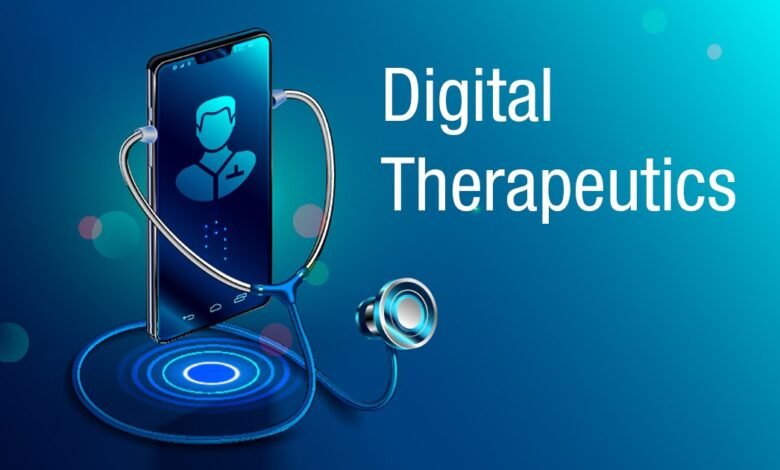Amazing Digital Therapeutics Prescribing Software for Health 2023

In recent years, the healthcare industry has witnessed a significant transformation with the emergence of digital therapeutics. This innovative approach involves the use of software and digital technologies to treat and manage various medical conditions. As we venture into the year 2023, the potential of digital therapeutics to revolutionize health care is becoming more evident. This article explores the concept of digital therapeutics, its applications, benefits, and challenges.
The Rise of Digital Therapeutics
The integration of technology into health care has paved the way for digital therapeutics to gain momentum. As more patients seek convenient and accessible healthcare solutions, digital therapeutics offer a promising alternative. These software-based treatments range from mobile apps to wearable devices, and they are designed to address specific health issues in a targeted manner.
How Digital Therapeutics Work
Digital therapeutics operate on evidence-based therapeutic interventions. They leverage data analytics, artificial intelligence, and machine learning algorithms to deliver personalized treatment plans. Patients can access these therapies through smartphones or other digital platforms, enabling them to take charge of their health in the comfort of their own homes.
Advantages of Digital Therapeutics
Increased Accessibility
Digital therapeutics break down barriers to health care access, especially for those in remote or underserved areas. Patients can access these treatments using their smartphones, eliminating the need for physical visits to healthcare facilities.
Personalized Treatment
Through data analysis, digital therapeutics can tailor treatment plans to individual patients. This personalized approach enhances the effectiveness of the treatment and improves patient outcomes.
Cost-Effectiveness
Compared to traditional medical interventions, digital therapeutics tend to be more cost-effective. This makes healthcare more affordable for both patients and healthcare systems.
Real-Time Monitoring
Digital therapeutics often include remote monitoring capabilities, enabling healthcare providers to track patients’ progress in real-time. This feature allows for timely intervention and adjustments to treatment plans as needed.
Key Applications of Digital Therapeutics

Mental Health Management
Digital therapeutics offer various mental health applications, such as mindfulness and cognitive behavioral therapy apps. These tools can help individuals manage stress, anxiety, and depression.
Chronic Disease Management
Patients with chronic conditions like diabetes or hypertension can benefit from digital therapeutics that assist in monitoring vital signs and providing lifestyle recommendations.
Smoking Cessation
There are digital therapeutics designed to aid individuals in quitting smoking by providing support, encouragement, and tracking progress.
Physical Therapy
For patients undergoing physical rehabilitation, digital therapeutics can supplement in-person sessions by guiding exercises and tracking improvements.
Challenges and Limitations
Regulatory Framework
The regulatory landscape for digital therapeutics is still evolving, which can create uncertainties in the industry.
Data Privacy and Security
As digital therapeutics collect sensitive health data, ensuring robust data privacy and security measures is crucial to maintain patient trust.
User Engagement
For digital therapeutics to be effective, user engagement is paramount. Motivating patients to consistently use these apps and devices can be challenging.
Regulatory Hurdles

One of the primary challenges faced by digital therapeutics is the complex and ever-evolving regulatory landscape. As these interventions fall under the purview of both medical and software regulations, obtaining approvals from multiple regulatory bodies can be time-consuming and costly. In some cases, the lack of clear guidelines hampers the speed of approval, leading to delays in bringing these solutions to market.
Data Security Concerns
Digital therapeutics heavily rely on patient data to personalize treatments and track progress. However, this reliance raises significant concerns regarding data security and privacy. Medical data is highly sensitive, and any breaches could have severe consequences for patients and erode trust in these solutions. Striking a balance between data access for effective treatment and maintaining robust security measures remains a significant challenge.
Limited Access to Technology
Despite the proliferation of digital technology, there are still pockets of the population that lack access to smartphones, reliable internet connectivity, or the necessary technical literacy. This digital divide poses a limitation to the widespread adoption of digital therapeutics, as it excludes certain segments of the population from benefiting from these interventions.
Efficacy and Evidence
While digital therapeutics show great promise, there is a need for robust clinical evidence to support their efficacy and safety claims. Conducting large-scale clinical trials to demonstrate effectiveness can be costly and time-consuming. Additionally, the constant evolution of technology often outpaces the research, making it challenging to keep up with the latest evidence.
Physician Adoption
Integrating digital therapeutics into the existing healthcare system requires physician acceptance and engagement. Some medical professionals may be hesitant to adopt these digital solutions due to concerns about job displacement or unfamiliarity with the technology. Proper training and education are essential to address these reservations and promote widespread adoption.
Reimbursement and Pricing
Digital therapeutics represent a new category of healthcare interventions, leading to uncertainties surrounding reimbursement and pricing models. Insurers and healthcare systems are still grappling with how to fairly reimburse for digital therapeutics, which can affect their accessibility and affordability for patients.
User Engagement and Compliance
The success of digital therapeutics relies on user engagement and adherence to prescribed treatments. Ensuring that patients consistently use the applications and follow the treatment plans can be challenging. Gamification and personalized user experiences are being explored to enhance patient compliance, but more work is needed to optimize these strategies.
Interoperability Issues
Digital therapeutics often need to interact with various healthcare systems, electronic health records, and other devices. Achieving seamless interoperability between these different systems is a significant challenge, as it requires standardized protocols and collaboration among various stakeholders in the healthcare ecosystem.
Ethical and Legal Concerns
As digital therapeutics collect and analyze vast amounts of patient data, ethical and legal concerns arise regarding consent, ownership, and potential biases in algorithms. Transparent guidelines and ethical frameworks are essential to address these issues and ensure that patients’ rights are protected.
Constantly Evolving Technology

The field of digital technology is ever-changing, and new advancements occur rapidly. While this presents opportunities for innovation, it also poses a challenge for digital therapeutics developers who must continuously update their solutions to remain relevant and effective.
Conclusion
Digital therapeutics hold immense potential in revolutionizing healthcare by offering personalized, accessible, and cost-effective treatment options. As we step into 2023, the adoption of these software-based interventions is likely to grow, benefiting both patients and healthcare systems alike.
Read more : 7 Best Automation to Increase Your Daily Productivity
FAQs(Health)
Are digital therapeutics as effective as traditional treatments?
Yes, several studies have demonstrated the efficacy of digital therapeutics in treating various medical conditions.
Can digital therapeutics replace in-person medical care entirely?
While digital therapeutics complement traditional medical care, they are not meant to replace it entirely, especially in emergencies and severe health conditions.
How can I access digital therapeutics?
You can access digital therapeutics through various app stores and digital platforms, usually after a prescription or recommendation from a healthcare professional.
Are there any age restrictions for using digital therapeutics?
Age restrictions may vary depending on the specific digital therapeutic app or device. Some may be designed for specific age groups, while others may cater to a broader audience.
Are digital therapeutics covered by insurance?
As the field is relatively new, insurance coverage for digital therapeutics may vary. It’s essential to check with your insurance provider to determine coverage options.
Read more : Would You Trust Technology to Handle Your Health?








One Comment